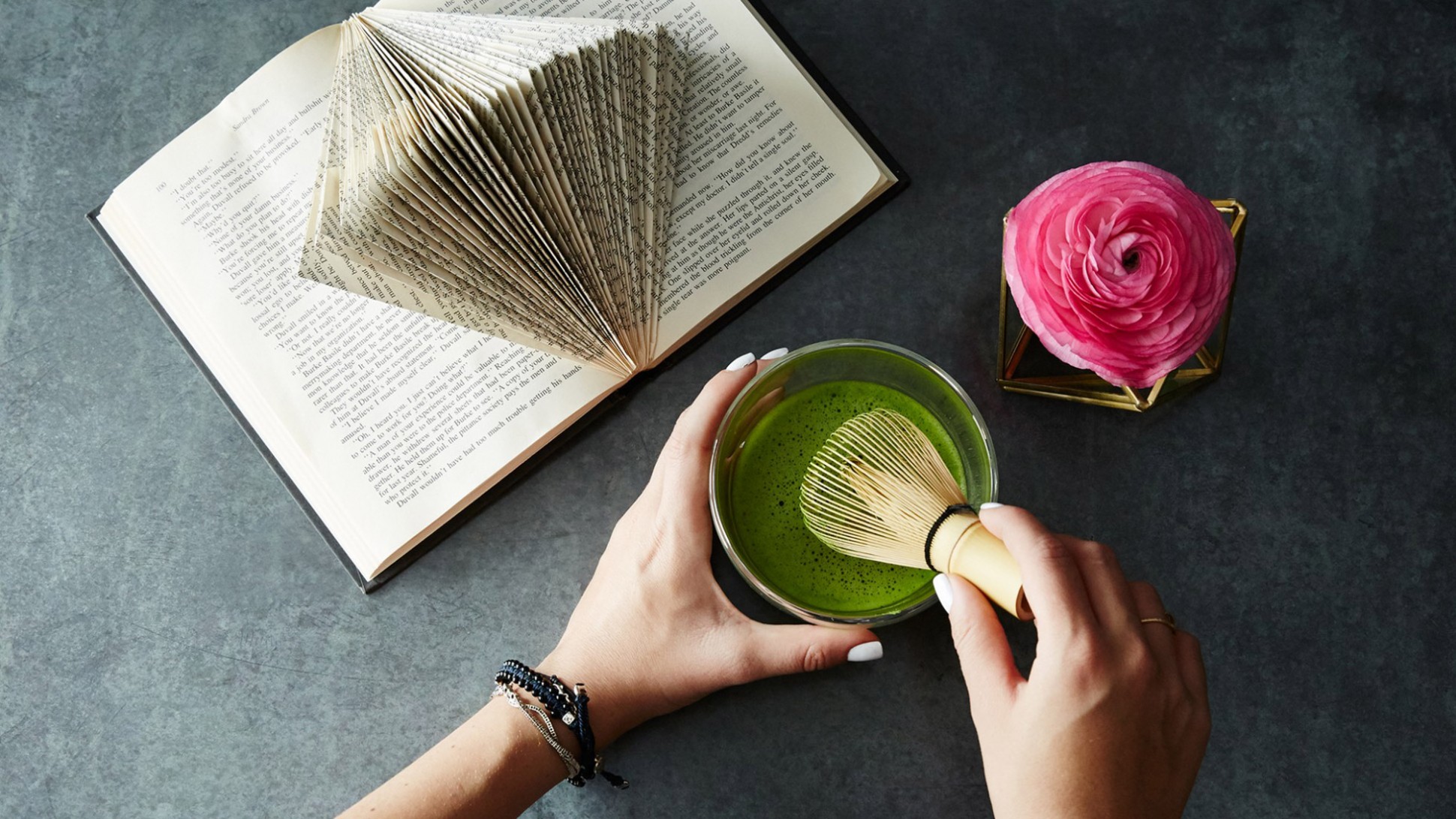The Beauty of Matcha Ceremonial Tea
Matcha tea has been used throughout the ages for optimal health. Thanks to many new studies we now know a few scientifically proven benefits of drinking matcha tea.
Matcha can be an excellent substitute for a morning cup of joe or for a sugary smoothie or juice. It's a great energy booster, without the jitters that drinking coffee can come with. Many celebs are taking to this gorgeous green drink for its anti-aging and beautifying benefits as one of the world's foremost superfoods.
And it's the sweetest process to prepare this gorgeous drink. There are Japanese tea ceremonies dedicated to making matcha tea and they are so beautiful.
Take a look at the process, which is a form of mindful movement, a moving meditation, if you will:
Some of the longest living cultures drink tea as a way to increase overall health and wellbeing. This is why:
Increases energy levels.
It’s said that Samurai’s from Japan drank Matcha Green Tea before going into battle to boost endurance, stamina and energy.
Kills cancer cells.
In various studies, green tea has been shown to kill cancer cells, without harming normal cells. Green tea drinkers are significantly less likely to get various types of cancer due to it’s powerful antioxidants. It could potentially reduce this risk of breast cancer, prostate cancer and colorectal cancer, to name a few.
Promotes weight loss.
Green tea is used in many weight loss supplements, and for good reason – it is shown to burn fat and boost the metabolic rate. The caffeine in green tea has also been shown to improve physical performance by mobilizing fatty acids from the fat tissues and making them available for use as energy.
Kills harmful bacteria and lowers the risk for Infections.
Catechins in match tea have been shown to kill bacteria and inhibit viruses like the influenza virus, potentially lowering your risk of infections. Catechins also inhibit the growth of streptococcus mutans in the oral cavity and improves overall dental health, including bad breath.
Prevents Type II Diabetes.
Studies show that green tea can improve insulin sensitivity and reduce blood sugar levels, making you less likely to get Type II Diabetes.
Benefits cardiovascular health.
Studies also show that green tea improves total cholesterol, LDL cholesterol, and triglycerides. Green tea also dramatically enhances the antioxidant capability of the blood, which protects the LDL cholesterol particles from oxidation (one of the major causes of heart disease). In fact, green tea drinkers have up to a 31% lower risk of cardiovascular disease.
Increases longevity.
In a study of 40,530 Japanese adults, those who drank 5 or more cups of green tea per day were significantly less likely to die during an 11 year period.
Boosts brain health.
Match tea may protect your brain in old age and improve brain function in the short term. Multiple studies show that these amazing catechin bioactive compounds in green tea can have various protective effects on neurons, potentially reducing the risk of Alzheimer’s and Parkinson’s disease.
Another side-effect of the L-Theanine in matcha is the production of dopamine and serotonin. These two chemicals enhance your mood, improve memory, and increase concentration. The caffeine in matcha tea has been shown to improve brain function and block Adenosine (an inhibitory neurotransmitter).
Studies on caffeine show improved mood, vigilance, reaction time and memory. Furthermore, the amino acid L-theanine that is prevalent is used for anxiety. Dopamine (the happy hormone) and alpha waves are also increased. Caffeine and L-theanine together work synergistically to improve brain function.
Enhanced blood flow and lowered cholesterol.
Green tea is great for heart health including blood pressure and cardiovascular health.
Bottom line: If you are looking for a way to get mega antioxidants in your system and increase your overall health, matcha tea is a great option. Some people are sensitive to the naturally occurring caffeine in green tea, so listen to your body to determine how much green tea is right for you.


